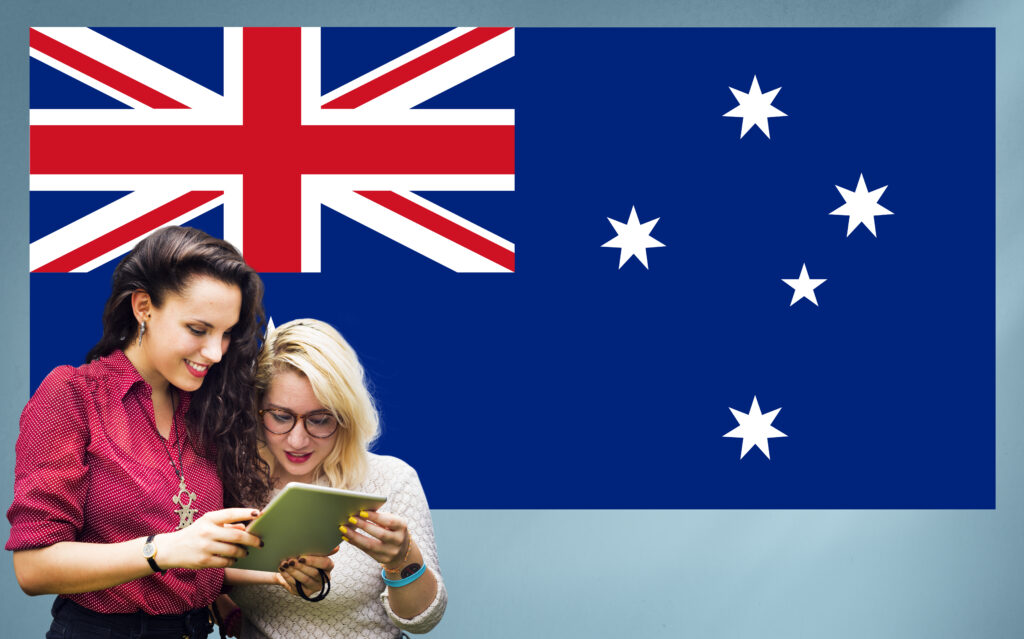- Opening Time : 8:30 AM - 9:30 PM

Australia is counted among the most popular destinations for studying abroad for students from
all over the world. Australia is home to some of the best universities and student cities in the
world. They provide excellent academic standards combined with cutting-edge research
infrastructure leading to the best post-study work opportunities and degrees that are respected
all over the world. In terms of universities and courses, Australia offers a diverse selection to
meet the interests of each student.
Australia is renowned for its quality of education, a wide range of employment opportunities, and a safe and secure environment to study. Some of the benefits of studying in Australia are elucidated in detail below.
1.) High quality of education, as well as internationally reputed qualifications during the study in Australia.
2.) Educational institutes in Australia are highly renowned for their research infrastructure and methodologies.
3.) Safety in Australia remains one of the major concerns for every international student.
No wonder Australia is a safe country for studying abroad.
4.) Australia is regarded as one of the safest and most student-friendly destinations in the
world. Society is multicultural, and there are strict laws against racism in the country.
Here is the eligibility checklist to study in Australian Universities.
● A minimum of 60% score is required in the XII standard to study at a diploma level in Australia.
● To study for a bachelor’s in Australia, a minimum score of 65% in the XII standard is required.
● To study master’s in universities, any bachelor’s degree which is 3 years long or equivalent to 12 years of education. And this education in any country is accepted in Australia.
● But studying honors in Australia for some courses requires 4 years of a bachelor’s degree or 16 years of education as mandatory.
● Most of the universities just need a bachelor’s degree from a reputed university in India to study in Australia.
Student will only be eligible for a student visa if they acquire an admission from an Australian university for a full-time course. The student visa is valid for a maximum of five years.
● An electronic Confirmation of Enrolment (eCoE) certificate, which will validate your enrollment at an Australian university.
● Statement of Genuine Temporary Entrant (GTE) – this is proof that you are just coming to Australia to study and not to stay.
● Four passport-sized photos which are taken recently.
● Copies of all academic transcripts /results documents.
● Overseas Student Health Cover (OSHC) — this health insurance, which has been approved by the Australian government, provides basic medical and hospital coverage. This insurance is available through your university.
● If you are a non-native English speaker, the results of English language examinations such as IELTS, TOEFL, and PTE should be submitted.
● Proof of sufficient funds to cover all expenses during the education.
● Proof of national citizenship
If there are any additional criteria, the Australian university will notify you before you submit your application.
● Financial Requirements – In order to obtain a student visa, you must demonstrate that you have the funds to cover your tuition, travel, and living expenses.
● Character Requirement – You must present a certificate proving you have never been convicted of a crime, which is a Police certificate.
● Proof of payment of visa fees – evidence that you have paid the requisite visa fees.
Types of Family Visas for Australia
An Australian dependent visa is a visa permit that allows the family members of a temporary
visa holder (student visa or a business visa) to live in Australia as a dependent.
1.) Partner Visa: This is for spouses, same-sex partners, and fiancés. There are two categories of partner visas – subclass 820 and subclass 801.
2.) Prospective Marriage visa: This type of visa (subclass 300) is for the candidates who are engaged to either a PR holder in Australia, an Australian citizen, or an eligible New Zealand citizen.
3.) Child Visa: This type of visa (subclass 101) is for children of a PR holder in Australia, an Australian citizen, or an eligible New Zealand citizen.
4.) Parent Visa: There are two categories under this type of Parent migrant visa (subclass 103) and Aged parent visa (subclass 804).
5.)Dependent visa: This type of visa is for the family members of a work visa holder or a student visa holder in Australia.
Australia, officially known as “the commonwealth of Australia ” is the world’s smallest continent and sixth-largest country. The country’s renowned wildlife, lush rainforests, national parks, scenic beaches, and deserts offer every tourist an enjoyable experience.
Do you have vacation plans in Australia? Here’s everything you should know about the Australian tourist visa.
As per the latest news, starting from February 21, 2022, all Indians who are completely vaccinated can travel to Australia without any exemption. However, individuals who are unvaccinated must obtain an individual travel exemption.
The validity of the Australian tourist visa is 12 months. In general, the Australian tourist visa permits Indian visitors to make multiple entries and stay in the country for a period of 3 months on every visit.
Every candidate will be charged an application fee worth AUD145. Additional costs for health exams, police certifications, and biometrics might also be charged. Please refer to Fees & Charges for Australia Visit Visa for a comprehensive and up-to-date list of applicable fees and
charges.
If the visitor wishes to extend their stay in Australia, they can apply for an extension on their subclass 600 Visitor visa until and unless there is no ‘NO further stay condition’ imposed.
WhatsApp us